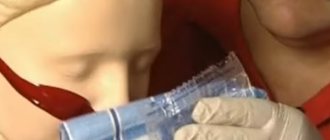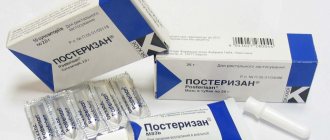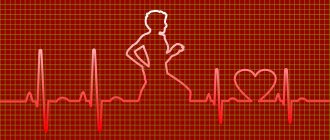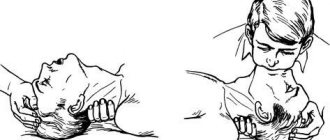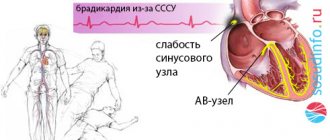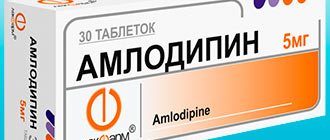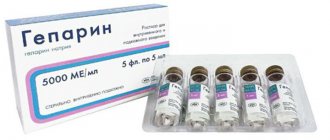Cure for stress
Cure for stress
Today, stress has become synonymous with any negative event. Family quarrel, dismissal, unpleasant news - all this often causes stress. But is he really that scary? In fact, stress is an important and even necessary reaction. It occurs in response to any stimuli that the nervous system interprets as a threat and mobilizes the body for defense. In the modern world, stress lurks at almost every step, and it can be called, without exaggeration, endless. Often, it turns from a protective reaction of the body into a destructive force that can cause a serious blow to human health. And in order to avoid serious consequences, you should consult a doctor at the first sign of trouble. Anti-stress medication prescribed by a specialist can help restore nervous system function and relieve anxiety.
In what cases can specialists prescribe medications for stress?
The most insidious aspect of stress is its ability to take many different forms. Often it even imitates diseases of internal organs, allergies and other conditions, which makes it difficult to identify the causes of a person’s complaints. Experts in the field of neurology and psychology recommend paying close attention to a number of signs that are highly likely to indicate overstrain of the nervous system and require treatment with stress medications.
Problems falling asleep. Sleep is the best indicator of the state of the nervous system. When stressed, the duration of falling asleep is disrupted. More than an hour may pass between the time a person goes to bed and the time he falls asleep. Moreover, even severe fatigue or a sleepless night the previous night does not affect the speed of falling asleep. In addition, under stress, sleep can be shallow, with frequent awakenings.
Excitability. A nervous system that is subjected to excessive stress is unable to provide adequate responses to certain situations. A person may experience strong internal tension and irritability, or even react aggressively to something that, outside of stress, did not unbalance him.
Violation of food culture. “Eating” problems is one of the common signs of stress. It is due to both a psychological factor (“I enjoy food and will prolong it by eating more and more”) and a physiological one (constant tension in the nerves requires a huge amount of resources, which the body compensates for by demanding high-calorie foods).
Bad habits. The need to relax and calm down under excessive psycho-emotional stress often takes the form of addiction or mania. Thus, under stress, the tendency to alcohol addiction increases, strange habits develop in the form of pulling out one’s own hair, repetitive movements (swaying the leg, nodding the head, etc.), an irresistible need to constantly wash hands, etc.
Apathy, indifference. These signs indicate depletion of the resources of the nervous system and are a kind of defensive reaction when a person withdraws himself from solving a problem that has become too large for him.
Lethargy. The constant attack of the body by stress hormones leads to disruption of almost all processes and functions, as a result of which the energy level is significantly reduced and the person experiences severe weakness and drowsiness.
It should be noted that in any case, medications for nerves and stress should be prescribed by a doctor. It takes into account the characteristics of the symptoms: increased excitability or apathy, the duration of influence of stress factors on the person, complications in the form of deterioration in physical health and other factors.
What are the dangers of stress?
Medicines for nerves and stress are not just drugs that alleviate the manifestations of excessive psycho-emotional stress. After all, stress is not just a bad mood. It initiates many biochemical reactions in the body, which, over a long period of time, can cause serious dysfunction of individual organs and systems of the body. One of the consequences of stress, which in the long term can lead to serious complications, is disruption of the immune system. As a result, allergic reactions can develop, relapses of chronic diseases become more frequent, the tendency to ARVI increases, and the body can no longer react actively enough to the penetration of pathogenic bacteria into the body, which can lead to the development of dangerous infectious diseases.
Remedies for nerves and stress help prevent such developments by reducing the impact of nervous and physical fatigue on the human body.
Groups of drugs for stress
Medicines for stress and nervous fatigue can have very different effects. When prescribing them, the doctor is guided by such factors as the cause of stress, the severity of the symptoms, their nature (excessive stimulation of the nervous system or, conversely, its depression), complications on the general health, etc. Depending on this, drugs for nerves and stress may be recommended from the following medicinal groups.
Sedatives. Medicines from this group have a mild or moderate sedative effect on the nervous system. Taking them can help restore sleep quality, reduce or completely eliminate increased anxiety and irritability. Almost all over-the-counter medications for stress and depression from this group are made on the basis of herbal ingredients, which are mild in action and have a relatively small number of contraindications.
The list of such drugs includes Corvalol PHYTO, which is available in the form of tablets and drops. It can help cope with stress and its consequences through a combination of natural plant extracts that have sedative, cardiotonic and antispasmodic effects. Taking Corvalol PHYTO can help normalize sleep and stabilize your emotional state. This drug can help eliminate autonomic manifestations of stress, such as tachycardia, increased blood pressure, etc.
Nootropic drugs Medicines from this group are not used as independent drugs in the treatment of stress, since they do not directly affect the mechanisms that provoke or maintain stress. But such drugs can help improve metabolism in nerve cells, which helps restore their functions and thus improves the adaptability of the central nervous system to stress. Nootropic drugs are prescribed in complex treatment for constant stress, high mental stress, circulatory disorders in the brain, etc.
CNS stimulants. Such drugs allow you to activate the functions of the nervous system and increase its productivity under conditions of increased physical or mental stress. CNS stimulants are used with caution, since if used inappropriately or incorrectly, they can relatively quickly deplete the resources of the nervous system, cause fatigue and even lead to drug addiction. Also, after stopping the effect of the drug, performance may sharply decrease and fatigue may increase. Therefore, such drugs are used only in combination and only if their prescription is justified from a medical point of view.
Tranquilizers. These are drugs designed to eliminate strong negative emotions: anger, aggression, fear, panic attacks, etc. They have a calming effect, but are not selective. Along with suppressing fear, anxiety and other strong emotions, they also reduce the speed of reactions of the nervous system. This manifests itself as severe inhibition of a person’s actions, deterioration in concentration and fine motor skills. But at the same time, clarity of thinking and clarity of speech are maintained. Drugs in this group are dispensed exclusively by prescription and are taken only for certain indications, such as anxiety spectrum disorders, panic attacks, abnormally high nervous excitability, etc. Considering that such drugs negatively affect a person’s ability to focus on something and perform precise actions, for the entire period of treatment it is necessary to exclude activities that require a high degree of concentration and the ability to quickly respond to events (driving vehicles, working with electrical tools, etc.).
Antidepressants. This group of medications is prescribed for depression or factors that may contribute to its development (for example, during periods of severe emotional turmoil). The action of these drugs allows you to stabilize your mood and get rid of its fluctuations, reduce the risk of suicidal behavior, etc. But these drugs also require extreme caution and can only be prescribed by a doctor, since if you choose the drug independently and incorrectly, the effect can be the opposite of what was expected.
Neuroleptics. Drugs in this group have a strong effect on the central nervous system, enhancing inhibition processes in it. They are used for severe diseases and disorders of the central nervous system and psyche (severe depression, schizophrenia, manic states, memory loss, etc.) and affect not only the affected areas of the nervous system, but also healthy cells.
All of these groups can, in turn, be divided into two large categories: drugs based on natural ingredients and drugs with synthetic active substances. The former have a mild and gradual effect on the body, their effects appear as the course of treatment continues. They are used for stress, neuroses and neurosis-like conditions that do not require potent drugs and have a small number of contraindications and restrictions. Herbal preparations can be used for a long time if recommended by a doctor.
Drugs created on the basis of synthetic components have a strong effect that occurs after taking the first tablet, and are used in cases where other drugs are not effective enough or their use is obviously inappropriate (usually in severe mental disorders and diseases of the central nervous system). They are dispensed exclusively by prescription, as they require the selection of a specific drug with strict consideration of all circumstances and strict adherence to the dosage. This is due to the fact that such drugs have a number of side effects and many of them carry the risk of developing drug dependence.
Folk remedies
Traditional medicine is widely used in the treatment of already developed stress conditions and as a prevention of nervous fatigue during a busy lifestyle. An important condition under which decoctions or infusions of medicinal herbs can help restore the nervous system and will not harm health is a mandatory preliminary consultation with a doctor. He will give recommendations regarding the choice of medicinal plants (chamomile, motherwort, mint, lemon balm, etc.), and will also tell you how to properly prepare and use products (decoction, tea, tincture, etc.) so that they have a calming and relaxing effect.
In addition to these methods, aromatherapy can be used. Essential oils of peppermint, lemon balm, lavender, or a combination of these can help you relax and relieve nervous tension. They can be used for sleep problems, increased anxiety and irritability. Citrus and coniferous oils, on the contrary, have a tonic effect and are recommended for stress, which is manifested by apathy and suppression of the reactions of the nervous system. But it is important to remember that folk remedies can only complement the main treatment, without replacing it completely.
About Corvalol
Today we will talk about the well-known medicine “Corvalol” and its wonderful properties.
This drug is prohibited for use in the USA and Europe, as well as many other countries, since Corvalol drops contain the substance phenobarbital (luminal). It is this component that puts Corvalol on a par with narcotic substances. Phenobarbital belongs to the group of barbiturates, psychotropic substances that can cause addiction with long-term use. However, in the CIS countries Corvalol is still produced and consumed in enormous quantities, especially by older people.
To better understand where such a dual attitude towards this drug in the world came from, we need to start with the history of its creation.
Military doctors in Germany have long been looking for a super drug that will increase the combat effectiveness of the army, relieving soldiers of the fear of the upcoming battle. After much research, a drug was created based on a synthetic drug - luminal. The new remedy had the ability to quickly eliminate anxiety, nervous tension and fear. Germany began mass production of the drug in 1912. And until the 50s, it remained the most popular sedative (sedative) in Europe, and possibly in the world. It relieved spasms in epileptics, it was taken for insomnia, and women calmed their nerves. The drug had many contraindications; it could accumulate in the body, and suicides fell in love with Luminal as a reliable way to commit suicide.
Perhaps that is why the Germans were looking for an opportunity to reduce the harm from luminal while maintaining its beneficial properties. And in 1934, in pre-war Germany, valocordin was created - a composition of phenobarbital, hop and mint cone oil and a bromine compound with valeric acid. All these components had the ability to calm, dilate blood vessels, relieve spasms, give sleep...
After the war, in the 50s, the production of valocordin was restored in the GDR. Apparently, in difficult times, when millions of people were still recovering from the stresses of wartime, it enjoyed great success, which did not pass the attention of Soviet pharmacologists. And in 1960, at the Kiev Pharmaceutical Plant named after. Mikhail Lomonosov began to produce an analogue - the well-known Corvalol. True, the plant itself reported that the author of the drops was their chief technologist. Perhaps it was he who excluded hop cone oil from the “German” recipe so that it would not look entirely like plagiarism.
In united Germany itself, they stopped drinking Valocordin, but now produces it exclusively for the countries of the former USSR.
Currently in Belarus, a prescription is not needed for Corvalol or Valocordin. And this product is inexpensive. With these drugs, older people are treated with everything - heart, kidneys, joint pain, insomnia, hypertension, tachycardia - in general, the whole set that is often found in older people. Of course, phenobarbital does not cure anything. But the pain and discomfort really dulls, besides creating in the user a state of “I’m calm, nothing worries me.” However, this state of calm is temporary, lasting as long as the substance is present in the body. And then, to calm down, you need to take the drug again and again, steadily increasing the dose. And so, systemic use and psychological dependence are gradually and imperceptibly formed.
But often the psychological problems that force one to use Corvalol are much deeper and more serious than it seems to a person at first glance. Depression, panic or anxiety disorder, and dysfunction of the thyroid gland are often behind insomnia, anxiety, tachycardia, heart pain and a lump in the throat. And Corvalol certainly will not cure all these conditions. And in addition to the existing problems, drug addiction will add.
Moreover, once a barbiturate addiction has developed, quitting the substance on your own is extremely difficult and deadly. Barbiturate withdrawal is accompanied by insomnia, tremors, sweating, nausea and vomiting, a drop in blood pressure, as well as seizures and hallucinations.
Therefore, it is very important to understand that if you experience psychological discomfort every day or too often, you should not self-medicate, but go to a psychologist, psychiatrist or narcologist. This way you will receive adequate help and treatment faster. And as a result, maintain your mental health.
